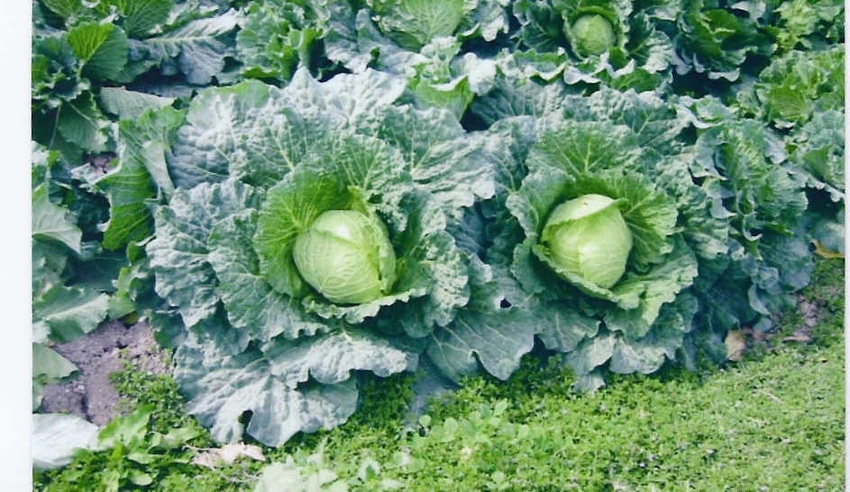
It's not often you'll hear a farmer say they are happy to see dry weather, but a shortage of rain this winter may help Texas vegetable growers recover from production shortfalls caused by diseases and pests problems over the last two years.
Winter rains during that time, especially last year, resulted in an uptick in diseases, weeds and pest pressure for farmers. Those problems caused increases in input costs and ended up taking a bite out of production numbers.
Farmers were bracing for the worst as forecasts over the last 60 days repeatedly called for another wet winter season. In fact, many predicted this could be a record-breaking winter in some areas of the nation for moisture in the form of rain and snow.
For the latest on southwest agriculture, please check out Southwest Farm Press Daily and receive the latest news right to your inbox.
But a check with county agents across what has come to be called the winter vegetable region of Texas indicates guarded optimism about the current winter crop. The region includes the Lower Rio Grande Valley and north up the Rio Grande River as far as Laredo and Del Rio, extending east and south to just north of the Coastal Bend.
Dr. Juan Anciso, an AgriLife Extension vegetable specialist in Weslaco, gives credit to the lack of rain so far this year as the prime reason why winter vegetables are doing well in February.
"Cabbage, carrots and onions in the Rio Grande Valley are doing extremely well," he said. “There have been reports of some disease problems, but nothing like last year when we had a lot of problems."
Those included heavy damage to the region's cabbage crop that was hit hard by black rot, caused by the bacterium Xanthomonas campestris pv. campestris. Combined with a weak commodity market, it made for depressed crop year for winter growers.
WHAT A DIFFERENCE A YEAR MAKES
But this year, so far, is very different.
"We haven't seen the heavy rain so far that had been predicted, and it has been a beneficial development for our vegetable growers. We're also looking at a stronger market this year," Anciso added, giving hope to winter vegetable farmers who were eager for a change.
In the four-county Valley growing region, winter vegetables account for an estimated $60 million in annual production. The Valley is known for its summer and winter production of watermelon, cantaloupes, onions, leafy greens, carrots, cabbage and potatoes.
Across the Valley, warmer temperatures and dry conditions are allowing for continued harvest of sugarcane, citrus and onions. In Starr County, farmers were planting row crops, and fall vegetable crops were progressing well.
To the north of the Valley lies an area that once led the nation in spinach production. Crystal City, Texas, has long been known as the Spinach Capital of the World, with a history to back it up. When spinach was first introduced in the area in 1917, it quickly helped area farms become the largest producer of spinach globally. Unfortunately, weather problems, declining water supplies and diseases brought an end to the "Great Spinach Boom," and the crop has declined considerably through the years.
Nonetheless, the annual production of winter and year-round vegetables across the Texas Winter Garden region continues, though crop diversity has grown considerably through the years.
According to the latest reports from across the upper Winter Garden, potato planting has been completed with about 75 percent of the crop in Frio County already emerged. Also in Frio County, wheat and oat planting was finished and most of both crops had already emerged. Farmers are now preparing fields for planting corn.
Soil moisture was reported adequate in Atascosa, Frio and LaSalle counties. In the eastern part of the region pasture grasses remained dormant and farmers were preparing to apply fertilizers. Brooks, Kleberg and Kenedy counties all were reporting adequate soil moisture.
In the western part of the region a cold front brought freezing temperatures to Dimmit County for the first time this winter earlier this week, while in Webb County, daytime highs rose to the mid-80s by mid-week. Zapata County officials issued red-flag wildfire warnings and a burn ban because of dry conditions. Producers with irrigation capabilities were applying water to all crops in the county. Also in Zavala County, onions progressed well, but some growers were fighting noxious weeds in onion fields, as well as in cabbage and carrot fields. Spinach and cabbage harvesting continued. Soil moisture was adequate in Dimmit, Webb and Zapata counties, but was rated very short in Zavala County.
DEFINING THE REGION
The Winter Garden Region is primarily the agricultural area in South Texas located north of Laredo and southwest of San Antonio. The region is centered on four core counties—Dimmit, Frio, La Salle, and Zavala—but includes parts of Atascosa, Maverick, and McMullen counties. Bexar, Medina, Uvalde, and Wilson counties all have small portions that lie within the defined area.
The area is noted for its milder climate and good soils, resources vital to the area where the majority of Texas vegetables are grown. It is called or known by many names but most often called the Texas Winter Garden region, and many consider the Lower Rio Grande Valley as an adjacent winter vegetable area.
What started out as an area of small farms changed after World War II ended, with many farmers selling to corporations like Del Monte. Larger farms became more popular in subsequent years, but a return to small farm operations as occurred in many areas within the region in recent years, most notably near Poteet. Today, the Winter Garden region is among the leading producers of irrigated winter vegetables in the nation.
About the Author(s)
You May Also Like




